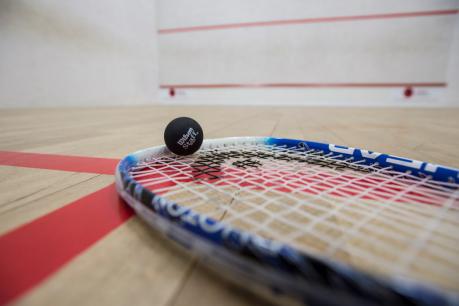In light of recent news of two squash academies, there is a growing need for more squash academies in the UK, as there is a major threat of closure of grassroots provision to make way for new facilities.
It is obvious to anyone that squash needs a massive boost in terms of mainstream media coverage both on a national and local scale, to boost participation among the youth.
Squash popularity in the 1980s
As a child who grew up in the 1980s, I heard stories about players such as Jahangir Khan and his brother Jansher; both were stars of sports and inspiration to players of all cultures. I even watched a relative of mine play squash every Friday night – with a little more practice, he could have gone professional.
For years, I have seen the rise of schemes to increase participation in football, swimming, and cycling because of success in major tournaments; but why not squash.
Could the closure of the squash court be a result of politics or lack of vision?
Just last year, female English squash player Laura Massaro finished 2015 ranked as the no. 1 squash player in the ladies’ world rankings – shouldn’t this make the senior management of a particular leisure social enterprise notice that squash in the UK is on the rise.
Just this month, England Squash launched a new initiative called Squash 101 to entice people to play squash with a difference – in a group of eight people at one time on a squash court. The scheme has been designed for people who play on a causal basis – from which there is a ‘leader’ who will coach the fundamentals of squash to enable them to a stage where they can start playing more to get fit and have fun.
I hope that the initiative not only increases squash participation but also inspires children of all backgrounds to take the sport with their families.
Squash Academies overseas
On a global scale, Australia suffered a similar fate with junior squash academies, in an interview in a news publication with ROAR; Aaron Frankcomb, who played squash player at a professional and amateur level, upon his return to his homeland in 2011; Aaron noticed that squash participation was failing as a result of no foundations to build upon.
As a result, he established a squash academy in collaboration with Squash Australia to bring the sport into schools to improve kids’ awareness of Squash.
The biggest squash academy in Australia is the East Coast Squash Academy, which has been the biggest contributor to grassroots initiatives in NSW and Australia is a unique business model as it focuses on the beginner child player all the way to the elite, high-performance professional player. As a result, the Academy is the only program in Australia, with programs for Professional, State Team, Regional, and start-up players. With over 600 children coming into our programs every week.
The scheme has a tiered structure that provides the pathway for children to develop and reach their full potential, with an added bonus, the program allows young players the opportunity to see first-hand what this standard is so one day they may choose it as their path for their athletic future.
Final Thoughts
Let’s not forget squash has its social value; having worked for two leisure club operators – I have seen the great social atmosphere of the game, whether it’s Club Night, Inter-Club Leagues, or Club v Club – squash is a sport that helps bring people together. Following playing squash at a junior level, children will have the opportunity at a University level or competitive level locally.
In my humble opinion, squash is an excellent sport and can serve a great purpose in the community, which can cascade to helping young get fit and tackle social inclusion. Removing squash courts could have a serious impact on the future generations of squash players, as well as could leave a generation with fewer sporting opportunities, furthermore have a negative on future sporting success in the UK.
Click here about our Partnership Opportunity

